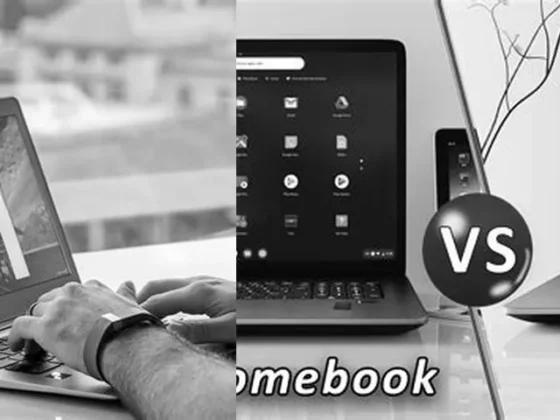Do Chromebooks Outlast Laptops? Unveiling the Truth About Longevity – Do Chromebooks Last Longer Than Laptops? The age-old question that every tech-savvy individual has pondered at some point. We’ve all been there, staring at our sluggish laptops, wondering if there’s a better, more durable option out there. Well, my friend, today we embark on a journey to unravel the mysteries of Chromebooks and laptops, and determine which one stands the test of time. So, grab your favorite beverage, sit back, and let’s dive into the world of computing longevity.
Understanding the Basics of Chromebook and Laptop Longevity
When it comes to the longevity of Chromebooks versus traditional laptops, there are several factors to consider. Both devices have their own sets of strengths and weaknesses that can impact their lifespan. To understand which might last longer, we must first delve into the basic operational differences between Chromebooks and Windows laptops.
Chromebooks’ Reliance on Web Apps
Chromebooks are designed to function primarily with web applications. This means that most of the software they use is accessed and processed through the internet, using Google’s Chrome OS platform. This reliance on web apps contributes to a reduced risk of virus infections and fewer instances of gradual slowdowns. Since Chromebooks aren’t as burdened by heavy third-party software installations, they often maintain their original performance levels for longer.
Windows Laptops and Third-Party Software
On the other hand, Windows laptops are known for running a variety of third-party software. These applications tend to support the last few generations of Windows, which can be both a blessing and a curse. While this provides users with a wide range of software options, it also increases the risk of viruses and can lead to a gradual slowdown of the system over time, as the laptop juggles multiple heavy programs and potential compatibility issues.
Comparing the Longevity of Chromebooks and Laptops
Knowing the inherent differences in software usage between Chromebooks and Windows laptops, we can begin to compare their longevity.
Hardware and Software Longevity
Both Chromebooks and Windows laptops are built to last for many years, even without significant upgrades. The hardware in both types of devices is generally durable, and manufacturers have improved the quality of components over time. However, the streamlined nature of Chromebooks allows them to operate efficiently for longer, as they are less likely to encounter the software-related issues that can plague Windows laptops.
Security and System Reliability
Chromebooks have an advantage when it comes to security. Their limited approach to software — focusing mostly on web apps — means that they are less prone to virus attacks. This results in a more reliable system that maintains its performance without the need for frequent troubleshooting or virus removal, which can extend the usable life of the device.
The Limitations and Challenges of Chromebooks
Despite the advantages of Chromebooks in terms of longevity, they do have their limitations, which can affect their practical lifespan for certain users.
Screen Resolution and Hardware Capabilities
Chromebooks might not offer the high screen resolutions and powerful hardware that some users need, especially for tasks involving high-definition media files. This limitation could make Chromebooks less suitable for professionals in fields like graphic design or video editing, where top-tier screen resolution and robust processing power are essential.
Compatibility Issues with Peripherals
Printing from a Chromebook can pose challenges, particularly when dealing with older printers that may not support wireless printing or Google Cloud Print. This limitation can be a significant inconvenience and may lead some users to opt for a traditional laptop that offers broader compatibility with external devices.
Google’s Extended Support for Chromebooks
One of the most significant recent developments in the lifespan of Chromebooks is Google’s decision to extend support for models shipped in 2021 to ten years. This extension is a clear indication of Google’s commitment to the longevity of Chromebooks and provides users with the assurance that their devices will receive necessary security updates and software support for a decade, which is a substantial period for any tech product.
Conclusion: Weighing the Pros and Cons
The question of whether Chromebooks last longer than laptops is not straightforward. While Chromebooks may have an edge in terms of maintaining their performance over time due to their simplified software approach and resistance to viruses, they also face limitations in hardware capabilities and compatibility with peripherals. Ultimately, the longevity of either device will depend on the user’s needs and how they maintain their device.
For users who rely heavily on web-based applications and value security and system efficiency, a Chromebook may indeed last longer and serve them well throughout its lifespan. However, for those who require high-performance hardware and a wide array of software options, a traditional Windows laptop might be a better choice in the long run, despite the potential need for more maintenance.
Users must consider their specific requirements and usage patterns when deciding between a Chromebook and a laptop. Both devices have the potential to be long-lasting companions, provided they align with the user’s lifestyle and work demands.
FAQ & Related Questions about Do Chromebooks Last Longer Than Laptops?
Q: Do Chromebooks last longer than laptops?
A: Both Chromebooks and laptops tend to last for many years, even without upgrades. Any difference in longevity between the two is likely to be slim.
Q: Are Chromebooks more reliable than laptops?
A: Chromebooks are known for their secure system and are less likely to succumb to viruses. This limited approach contributes to their reliability.
Q: Why is a Chromebook dying so fast?
A: Having too many applications open simultaneously can consume system resources and deplete a Chromebook’s battery faster than usual. Closing unused applications can help extend the battery life.
Q: Can a Chromebook last 10 years?
A: Yes, going forward, all Chromebooks will have a minimum support lifespan of a decade.
Q: How many years will a Chromebook last?
A: Google has extended the Chromebook support lifespan to ten years. If you own a Chromebook shipped in 2021, you’ll automatically receive ten years of updates.


